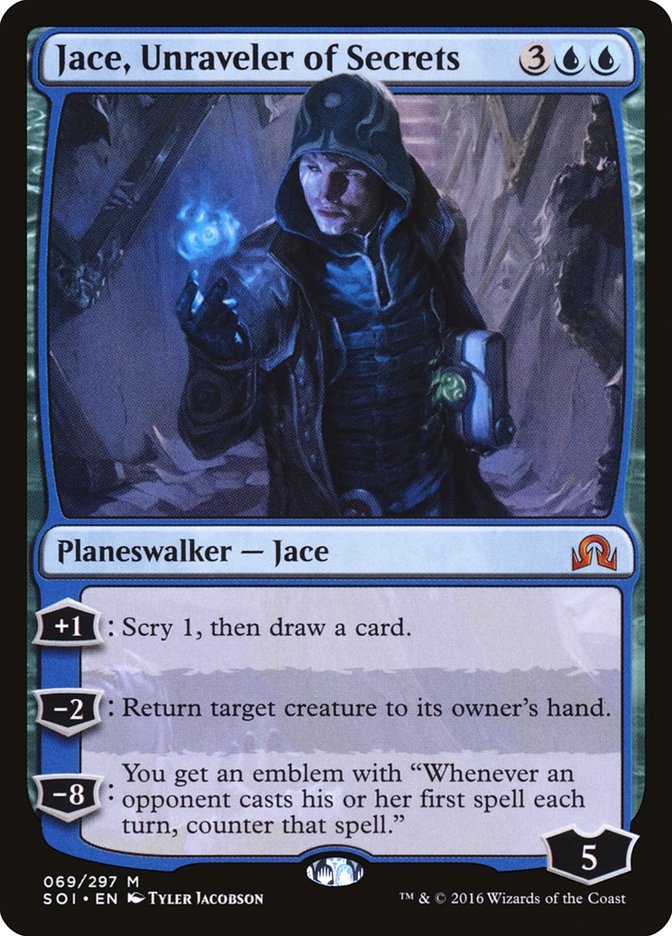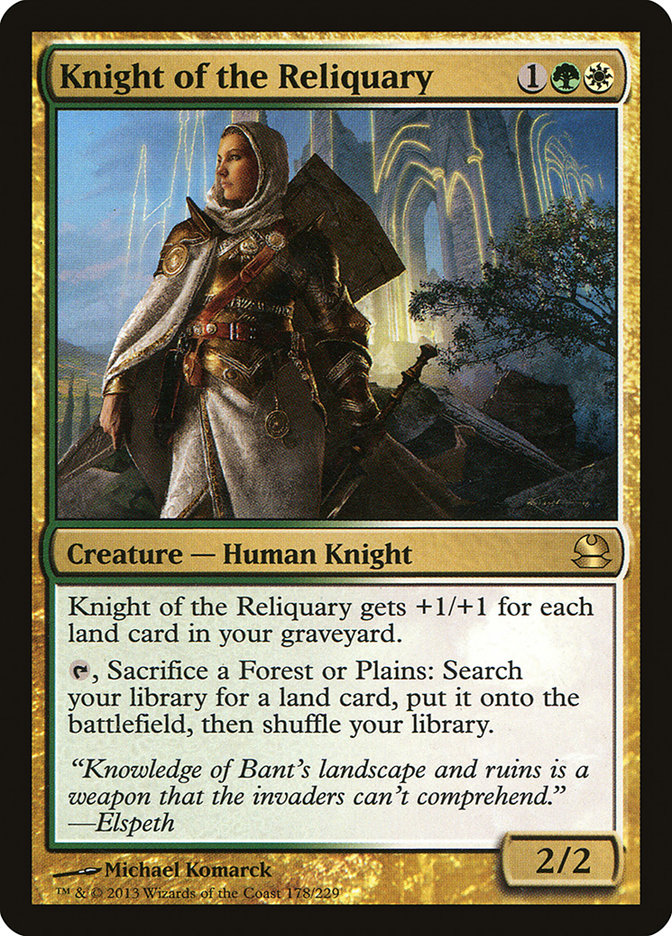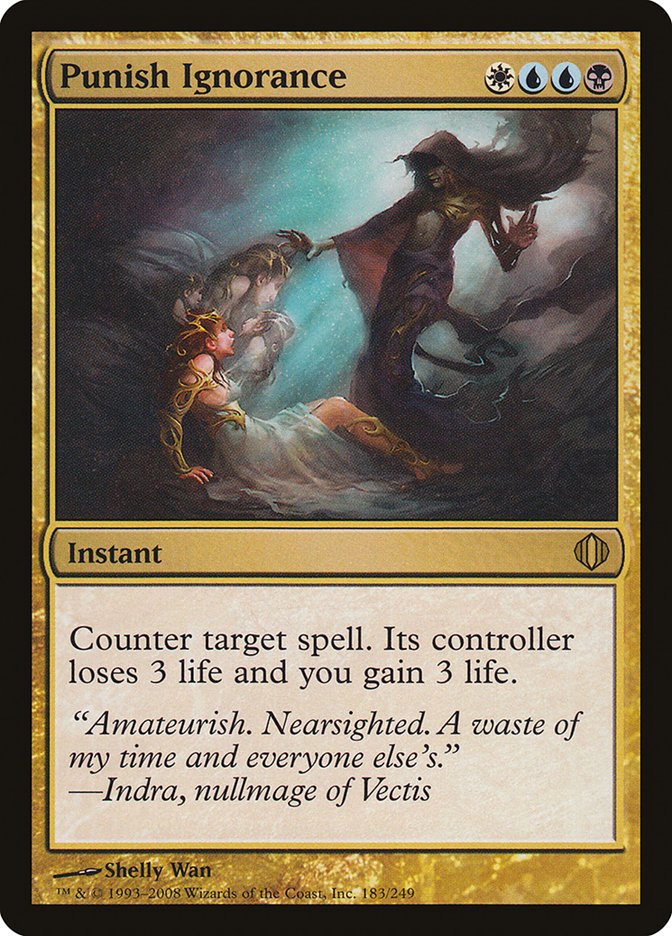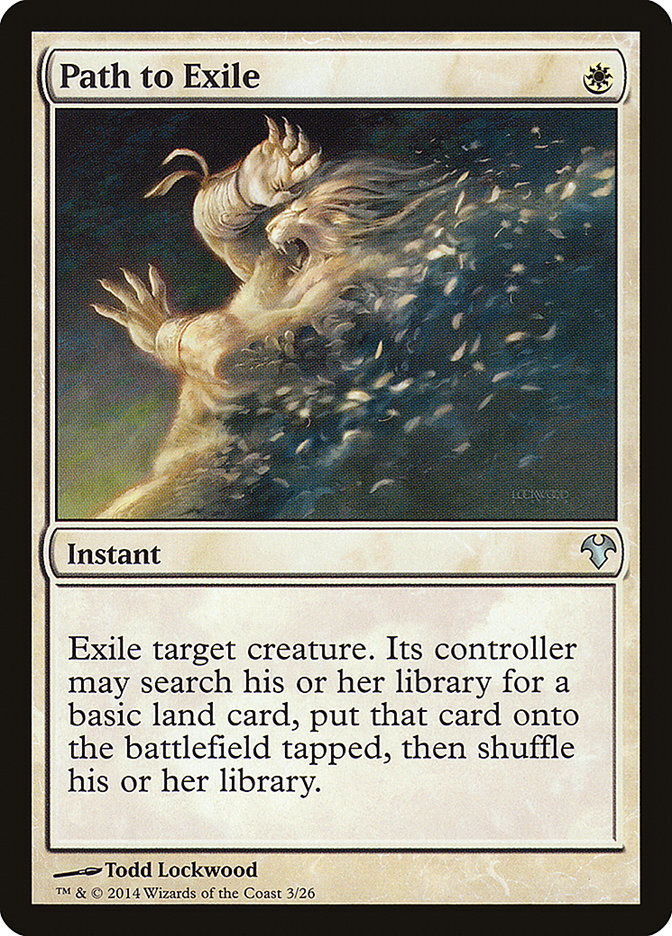Our story begins with a rousing game of Magic Online. No, it didn’t crash, and I actually got to play a bug-free game where casting a spell didn’t cause the client to freeze my computer, or moving to combat wasn’t the cause for the resurrection of the evil Lord Kilokahn (I just punched you right in the childhood). I mean, I was able to play a real match!
I had drafted a G/R Werewolves deck and was paired in the first round against what I think was U/W? I don’t really know, because the first game my opponent played two lands and then nothing.
That wasn’t very nice, was it? The next game I was able to put together a really nice curve and win by around turn 7 or 8. His deck the second game was much better, topped off with Jace, Unraveler of Secrets, but my battlefield was too overpowering and a Malevolent Whispers sealed the deal.
“Not surprising an idiot like you would topdeck the best possible card. Your deck is trash.”
Now wait a minute. Them’s fightin’ words.
I chose not to engage the enraged person on the other side of the screen, but it did plant the seed in my head of what we’re going to talk about today. Then, after enjoying the coverage of #SCGATL, it grew into a forest of ideas.
The Patrick Sullivan Quandary
I’ve seen this clip a thousand times, but it still blows my mind every single time I watch it.
No one is going to doubt the skill set of either player, right? Ross is an absolute beast with arguably the third-best beard here at SCG, trailing behind both CVM and me but still quite respectable. Patrick Sullivan is a maestro with red decks in the way that we look at Tom Ross today when wielding them.
If you’ve never taken a minute to explore this video, I urge you to. If you like spoilers, Patrick Sullivan wins an extremely unwinnable game with Burn against G/W Maverick in Legacy. When I say unwinnable, I mean that him claiming victory that game caused Ross to sit there for minutes afterwards trying to figure out went wrong and Patrick literally had to walk away from the table for a moment afterward to collect himself. “The Innovator” Patrick Chapin called the match and famously testified to how ridiculous the whole situation was.
In short, it was the creation of a moment that countless players look back on and watch to see just how Patrick Sullivan did it.
He didn’t just do it.
He did it with Burn.
You know. Old “skill-less” Burn.
The Tom Ross Quandary
This weekend, Tom Ross took down #SCGATL with W/R Humans. Here, take a look!
Creatures (31)
- 4 Knight of the White Orchid
- 4 Dragon Hunter
- 3 Kytheon, Hero of Akros
- 2 Anointer of Champions
- 2 Consul's Lieutenant
- 4 Expedition Envoy
- 4 Thraben Inspector
- 4 Thalia's Lieutenant
- 4 Town Gossipmonger
Lands (18)
Spells (11)
Sideboard

Good old-fashioned Southern Magic. We play the creatures, attack with the creatures, and the only math we do ain’t combat but the subtraction of our opponent’s life totals. It’s simple, but we like it that way.
Tom is a master of pressure and reading. It’s not just picking the right deck for the right tournament and catching people off-guard. W/R Humans almost won a Grand Prix, and it has been talked about. This deck isn’t an unknown that is going to steal wins based on surprise factor. Quite the contrary.
Everyone talks about how good Languish is in this format, but neglects to tell you that most of the Languish decks suck. It’s like being a good player on a crappy football team. It doesn’t matter that it’s great if you’re dead before you can cast it. How many enters-the-battlefield-tapped do those decks pack? Like, twelve? Sounds miserable. It’s not a surprise that Tom won, but to me it is far more surprising that people don’t understand why.
When Tom won a very quick game on camera, someone commented on a social media site group that I am in that it must have been “real nice to get a free win” and that he expects a fantastic player like Tom Ross to “play more skillful decks.”
I quickly left the group, lest my delicate sensibilities continue to be assaulted.
The Hunter Quandary
I love playing the Hunter class in Hearthstone. I’ve achieved Legendary, the game’s highest ranking, with it four times specifically, playing multiple iterations from hyper-aggro to control to midrange. The combination of pressure, aggressive minions, sticky creatures that are hard to remove and often have a strong after-effect, and burst damage combine to form a class that I enjoy piloting.
When I would stream Hearthstone, even though I was doing it at the Legend rank, players who stopped in were sure to tell me how stupid I must be and that I wasn’t playing a class that took any skill whatsoever to battle with.
Somewhere down the line, playing a deck that could take out huge chunks of life with spells instead of creature-based combat was deemed to be “skill-less.” Non-interactive lines and decks were treated almost like leprosy. This isn’t just regulated to Burn or aggro decks, but combo decks as well.
The Skill-Less Player Quandary
Let’s take a moment to look at some of the major archetypes and how they take absolutely no skill to play.
Burn Decks. You just Lightning Bolt people over and over again. You’re not interacting with me at all. Can you count to twenty? Congratulations, you’re a genius.
Storm Decks. Cool. You comboed me on turn 2. I didn’t even get to play Magic. All you do is learn the mechanics and do the same thing over and over again. Do you have to remind yourself to breathe?
Control Decks. Wow. You countered ten of my spells and then played a planeswalker. How hard was that? This is so boring. They didn’t invent Magic to only be played by one player. I didn’t get to resolve anything.
Aggro Decks. You’re dead if I have Languish. You know that, right? All you do is swarm the battlefield and empty your hand by turn 3. It takes no skill to attack. No finesse. What kind of idiot plays these decks? Newbs, that’s who.
Combo Decks. Amazing! Unless you have the perfect hand you can’t win, but you always seem to have the perfect hand. You’re so lucky I didn’t draw Duress.
The point is that no matter the archetype, an uneducated player is going to accuse you of not knowing what you are doing and being lucky regardless of your proficiency with the deck. Every different category has a stigma that people complain about, so regardless of what you choose, you will be on the end of this criticism.
Yes, some decks are more difficult to play than others. During our VS. Videos, often you’ll hear Todd Anderson, Brad Nelson, or Michael Majors say something along the lines of “this isn’t the easiest deck to pilot.” They are outstanding Magicians, so what chance do we have if it’s tough for them?
In order to obtain excellent results, a deck must be tested and learned. Exploring different plays that minimize the natural effects that variance has on a game of Magic is what separates ordinary players from extraordinary ones. It is not a coincidence that Tom Ross and Gerry Thompson made the Top 8 of #SCGATL.
What makes them better? Is it playing the right deck? Well, they both played different decks. Is it that they are naturally luckier? No, because if that were the case, they would never lose. No, their skills as players in a broader spectrum give them such positive results.
Would you accuse Tom Ross of being skill-less for playing an aggro deck like W/R Humans? Yes? What if he won an almost 700-player SCG Tour® event with it? Does that change things? If your answer is “It’s Tom Ross! He could win with a ham sandwich!”, then congratulations! You’re a part of the problem!
The “Skill or Luck” Quandary
Playing any deck very well, no matter the type, takes a ton more skill than an average player will give it credit for. We all want to be all-stars and Top 8 huge events, so taking away something from these decks makes a player feel somehow superior.
At my last Grand Prix, I won pretty quickly, while my opponent informed me that my draws were pretty lucky and that he couldn’t beat “luck like that.” Bummer. I thought I played pretty well. Those kinds of things don’t bother me, so he wasn’t able to take that away from me. To a player who was just learning or excited to win a match at their first Grand Prix, that type of talk can easily damage their confidence.
I touched on it a few paragraphs ago, but I believe it demands reiteration: to do well in Magic, you must be skilled enough to minimize variance with your decision trees and plays.
The video I linked earlier of Patrick Sullivan shows that, had he made a single misstep, he would have lost. Not only were his plays extremely tight, but his knowledge of his deck along with what his potential draws could be led him to a monumental victory. Was it lucky that he drew the correct sequence of cards to kill Ross exactly, or was it skill that allowed him to weather the storm and win? This doesn’t seem like much of a question, because by the end of this you should already know the answer.
There are times when you play Magic that you will draw the exact card you need to win a game, and in a sense that is lucky, but how many obstacles did you have to overcome in order to get to that critical draw step?
To me, this is an instance of setting yourself up for success rather than something you should attribute to luck, especially when games go long. I find placing stock in luck drops significantly when you’re in the later turns of a game and either you or an opponent draws the best possible card. It’s turn 15. What did you expect? Why is the card in your deck for the first place? To be drawn, of course.
Regardless of your deck choice, whether combo or burn or aggro or control, playing any deck to its maximum potential takes skill. Slinging Fireblasts or killing with a Grapeshot takes as much skill as attacking with a Goblin Guide or using a counterspell. Sometimes you will get free wins with these decks, but does that mean you’re lucky or not a good player, or can that be attributed to your deck choice in a metagame full of favorable situations?
If the format is stuffed to the brim with creature decks that pack tons of removal spells, are you “lucky” for picking a creatureless deck that preys on them, or burning them out with spells they can’t target with Ultimate Price? It’s not always about luck. Far less than you’d think.
So what makes a player skilled? What makes a player skill-less?
I don’t think you can pin that down and give form to those intangibilities. I’m guessing it has a lot less to do with their deck selection and draw steps than we assign blame to.
Maybe…just maybe…players pick good decks and play well.
Or not.
They’re probably just really lucky all the time.
God, this game takes no skill.








